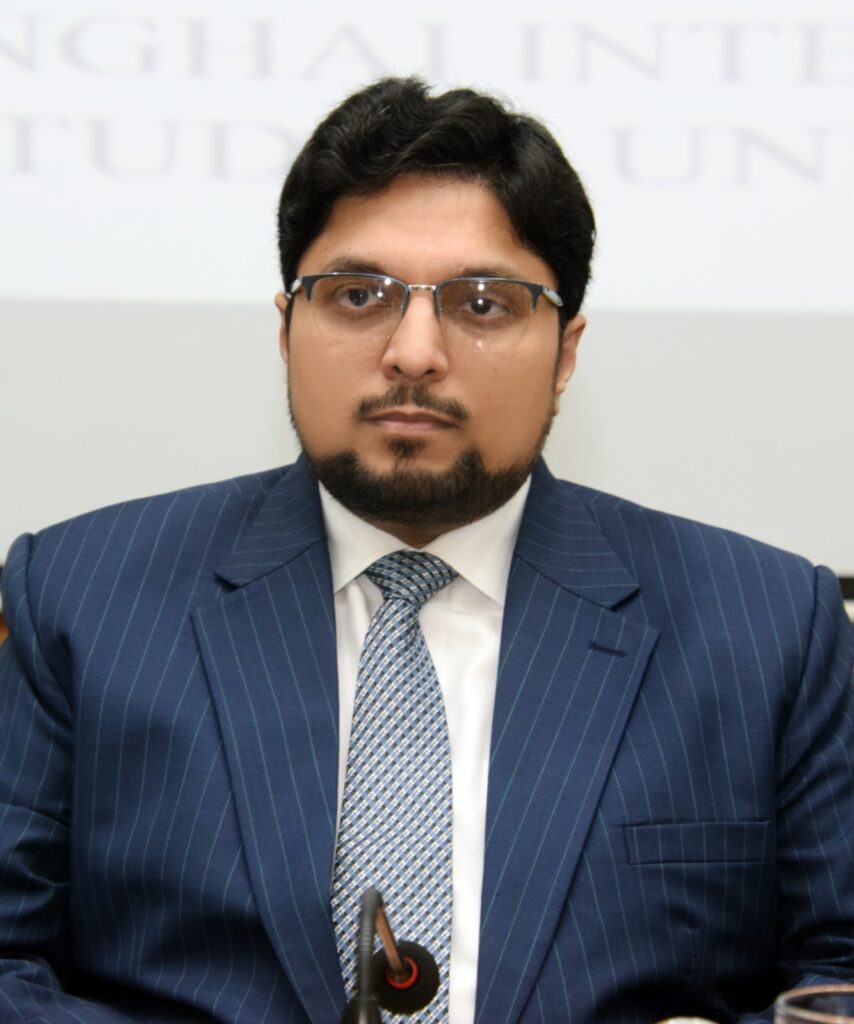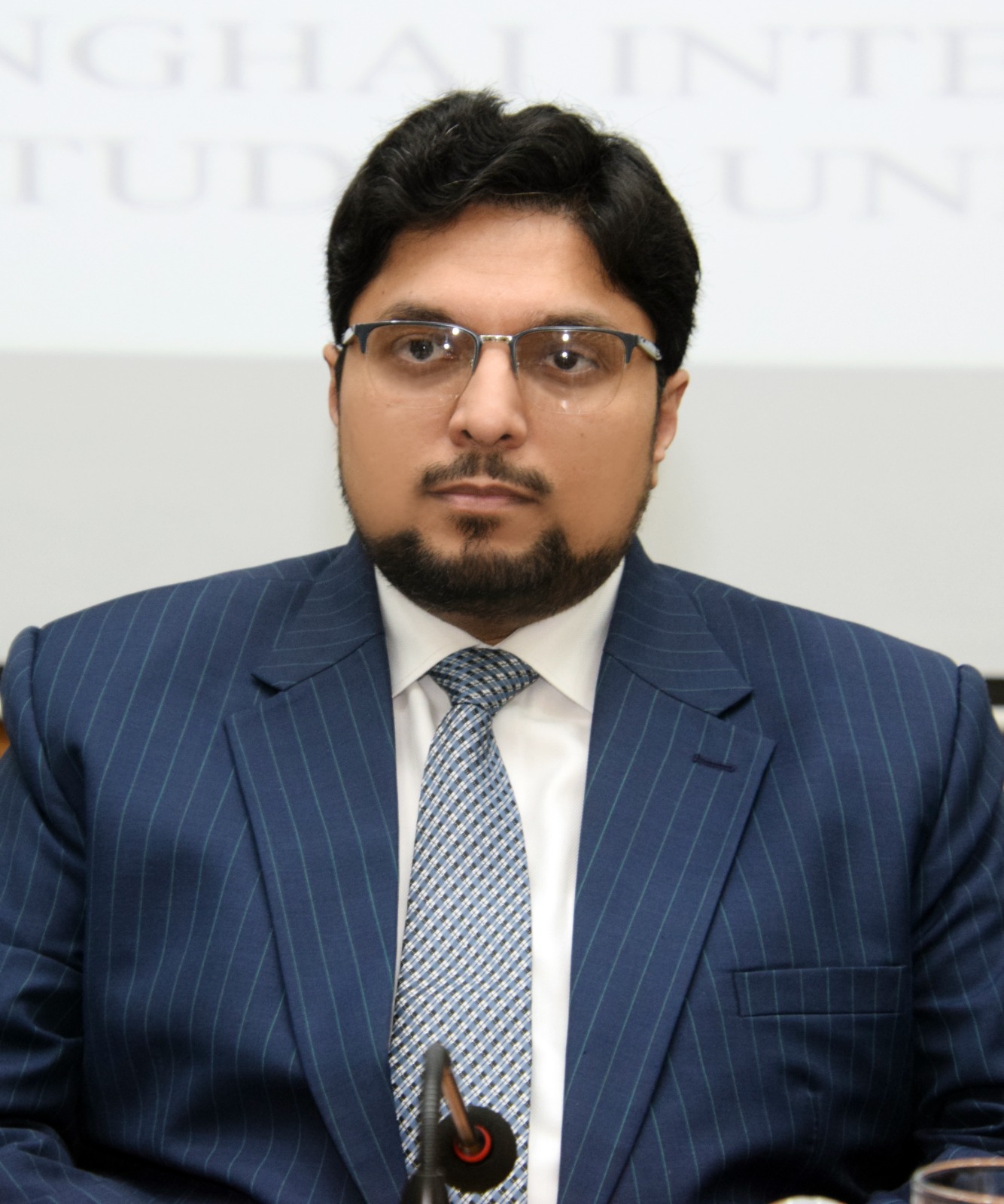
The Writer is Prof. Dr Hussain Mohi-ud-Din Qadri,
Deputy Chairman of BOG-MUL
In an era marked by geopolitical tensions and societal divides often fueled by religious misinterpretations, Minhaj University Lahore has emerged as a beacon of hope and understanding. The university recently hosted an international conference titled “Politics and Violence in the Name of Religion,” attracting over 2,000 participants, including esteemed scholars, policymakers, and students from diverse backgrounds. This gathering aimed to promote peace, enhance cross-cultural understanding, and critically address the misinterpretations of religious texts that can incite conflict. The conference aimed to promote peace, and cross-cultural understanding, and address misinterpretations of religious texts that can lead to conflict. In my keynote address, me Prof. Dr. Hussain Mohi-ud-Din Qadri, emphasized the significance of contextual interpretation of religious texts to prevent conflict and foster peace. I highlighted how misinterpretations can stem from out-of-context readings, fueling extremism and leading to conflict, and stressed the critical role of religious scholars in ensuring accurate interpretations grounded in each religion’s foundational principles. The conference featured over 30 research papers and discussed core themes such as understanding misinterpretations in religious texts, key principles of Qur’anic exegesis, misinterpretations of jihad, and clarifying misapplications of Dar al-Harb. Prominent figures included former Maldivian President Dr. Muhammad Waheed Hassan and renowned counterterrorism expert Dr. Rohan Gunaratna. Dr. Qadri’s address called for sustained scholarly engagement to address nuanced aspects of religious texts and praised the conference’s role in advancing understanding across faiths. Minhaj University Lahore continues its mission to foster cross-cultural understanding and counter harmful misconceptions at both local and international levels. The conference explored the core themes and insights: Understanding Misinterpretations in Religious Texts: Religious scholars often adapt texts over time, leading to interpretations that differ from the original context, inadvertently fueling misunderstandings; Key Principles of Qur’anic Exegesis: Effective Qur’anic exegesis requires a deep understanding of historical, geographical, and psychological contexts; Misinterpretations of Jihad: Jihad in Islam signifies a spiritual and ethical struggle for justice and social reform, not violent warfare; Interpreting Controversial Qur’anic Terms and Concepts: Key phrases in the Qur’an are often misunderstood, and accurate interpretations are essential to prevent misapplications; Clarifying Misapplications of Dar al-Harb; Extremist misinterpretations of Dar al-Harb have led to misconceptions about its application, and traditional Islamic jurisprudence classifies regions based on peace and security rather than religious governance alone; and Rethinking the Concept of Khilafa. The conference reflects a growing recognition of the need to reassess and reinterpret religious texts to mitigate the risks of violence in the name of faith. The persistent misapplication of religious doctrines, particularly in relation to political violence, poses significant challenges to global peace. By creating a platform for dialogue and scholarly engagement, Minhaj University seeks to counteract the narratives that often lead to extremism and violence.
I, Dr. Qadri, emphasized in my keynote, the importance of contextual interpretation of religious texts, warning against the dangers of out-of-context readings that can fuel extremism. I also argued that many violent interpretations of religious doctrine stem from a fundamental misunderstanding of the original texts, which can lead individuals to justify acts of violence under the guise of religious obligation. I further stressed religious scholars should take on a proactive role in ensuring that interpretations of religious texts are grounded in the foundational principles of their respective faiths, and advocated for sustained scholarly engagement to address the nuanced aspects of religious texts, fostering an environment where peace and understanding prevail over conflict. The conference encompassed a wide range of themes aimed at unravelling the complexities of religious misinterpretations. Over 30 research papers were presented, tackling issues such as the misinterpretations of jihad, the principles of Qur’anic exegesis, and the clarifications surrounding concepts like Dar al-Harb. One of the core themes of the conference was the understanding of misinterpretations in religious texts. Religious texts are often adapted over time, which can lead to interpretations that diverge significantly from their original meanings. This phenomenon has contributed to widespread misunderstandings, fostering divisions and conflict among different communities. Scholars stressed the need for a thorough historical and contextual understanding to accurately interpret these texts. Effective Qur’anic exegesis requires a comprehensive understanding of the historical, geographical, and psychological contexts in which the verses were revealed. Conference participants emphasized that a superficial reading of the Qur’an can lead to misinterpretations that fail to consider the socio-political conditions of the time. A robust exegetical framework is essential for deriving meaningful and relevant insights from the text, allowing for interpretations that align with contemporary values of justice and peace. One of the most contentious issues addressed at the conference was the misinterpretation of jihad. Traditionally, jihad is understood as a spiritual and ethical struggle for justice and social reform, rather than a mandate for violent warfare. The distortion of this concept has led to a dangerous narrative that equates jihad with terrorism. Scholars at the conference argued for a re-evaluation of this term to emphasize its original meanings, focusing on the inner struggle for righteousness and justice rather than its violent misapplications. Key phrases and concepts within the Qur’an are often subject to misinterpretation. The conference underscored the importance of accurate interpretations to prevent the misapplication of these terms in justifying acts of violence. Scholars presented various frameworks for interpreting controversial concepts, highlighting the need for rigorous scholarly debate and collaboration among religious leaders and academics.
Minhaj University’s Recent Conference: A Step Towards Peace and Understanding
The concept of Dar al-Harb, which traditionally refers to territories not governed by Islamic law, has been subject to extremist misinterpretations. This misapplication has contributed to a climate of fear and hostility towards those living in non-Islamic regions. Scholars pointed out that traditional Islamic jurisprudence classifies regions based on peace and security, rather than solely on religious governance. By clarifying these distinctions, the conference aimed to foster a more accurate understanding of international relations from an Islamic perspective. Finally, the conference called for a rethinking of the concept of Khilafa (caliphate) within the modern context. The notion of a caliphate has often been co-opted by extremist groups to legitimize their actions. However, scholars argued that the caliphate, in its original sense, was a system of governance focused on justice, welfare, and community, rather than a tool for political domination. By revisiting the foundational principles of Khilafa, religious leaders can offer a more peaceful and constructive vision of governance that aligns with contemporary democratic values. The conference featured a diverse array of speakers, including prominent figures such as former Maldivian President Dr. Muhammad Waheed Hassan and renowned counterterrorism expert Dr. Rohan Gunaratna. Their contributions enriched the discussions and underscored the global relevance of the conference’s themes. Dr. Waheed Hassan highlighted the importance of political leadership in promoting interfaith dialogue and reconciliation. He argued that leaders must take responsibility for fostering an environment of tolerance and understanding, rather than allowing political expediency to fuel religious extremism. Dr Gunaratna provided insights into the strategies employed by extremist groups to manipulate religious sentiments for their agendas. He emphasized the need for a coordinated global response to combat these narratives, advocating for a collaborative approach involving scholars, policymakers, and civil society.
Minhaj University Lahore has long been committed to fostering cross-cultural understanding and combating harmful misconceptions about Islam and other faiths. The university’s initiative to host such a significant conference underscores its dedication to addressing the root causes of religious conflict and promoting peace at both local and international levels. The university’s efforts align with global trends emphasizing the importance of dialogue and understanding in an increasingly polarized world. By engaging scholars and leaders in constructive discussions, Minhaj University aims to cultivate an academic environment that promotes critical thinking and challenges harmful narratives. The international conference on “Politics and Violence in the Name of Religion” at Minhaj University Lahore marked a significant step towards fostering peace and understanding in a world often overshadowed by religious conflict. Through scholarly engagement, critical discussions, and a commitment to accurate interpretations of religious texts, the conference has contributed to a broader dialogue on the role of religion in society. As the global landscape continues to evolve, initiatives like this conference are essential in promoting a culture of peace, tolerance, and mutual respect. The insights gained from this gathering will undoubtedly serve as a foundation for ongoing efforts to address religious misinterpretations and build a more harmonious world. The collective commitment of scholars, religious leaders, and participants is crucial in ensuring that the dialogue initiated at Minhaj University continues to thrive, ultimately contributing to a future characterized by understanding and collaboration among diverse faith communities.

